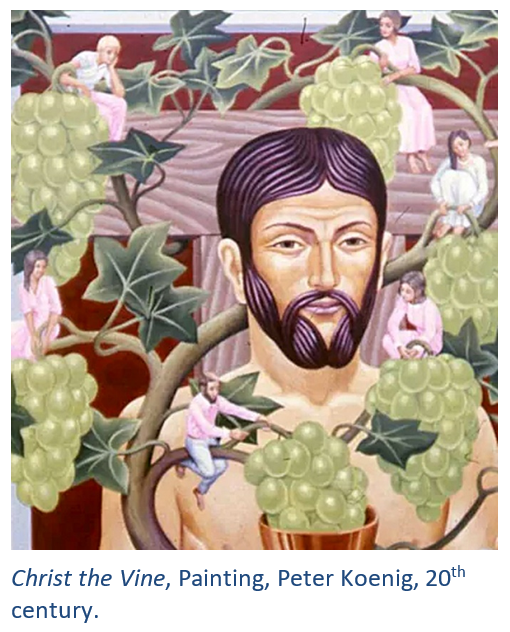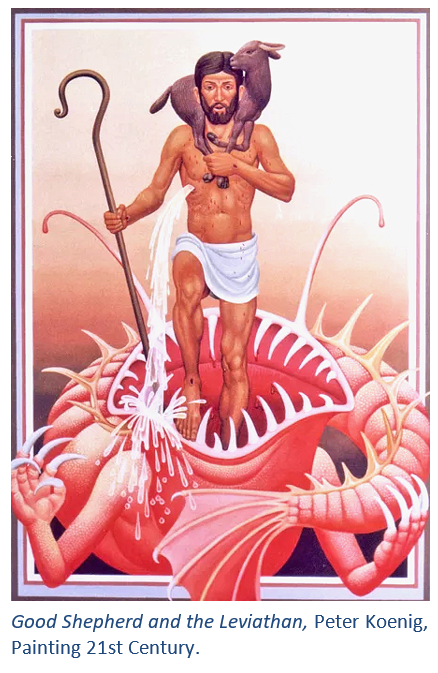 Whoever does not love does not know God, for God is love. ~1 John 4:8 Christ Jesus is the true vine…and we are the branches. We are the branches. How easy it is to get this backwards! We spend our days being busy and productive, occupying ourselves with good works, putting ourselves back into the center of the story. We are the branches. And there are other branches. Truthfully, we are later grafts, to the vine. We have more in common with the Eunuch of Acts 8 than Philip the deacon, one of the first to proclaim the Good News outside of Jerusalem. But for the love of God, our lives would be fruitless. But for the life-giving Spirit abiding with us, we would be without hope. Though vine nor fig tree neither their longed-for fruit should bear, though all the fields should wither, nor flocks nor herds be there, yet God the same abiding, his praise shall tune my voice; for while in him confiding, I cannot but rejoice. Enter into worship. Readings: Acts 8:26-40 † Psalm 22:25-31 † 1 John 4:7-21 † John 15:1-8 About the Art: Koenig, Peter. Christ the Vine, from Art in the Christian Tradition, a project of the Vanderbilt Divinity Library, Nashville, TN. https://diglib.library.vanderbilt.edu/act-imagelink.pl?RC=58500 [retrieved April 15, 2024]. Original source: Peter Winfried (Canisius) Koenig, https://www.pwkoenig.co.uk/.
0 Comments
 “I am the good shepherd. The good shepherd lays down his life for the sheep. ~John 10:11 Israel was unique in its experience of God as shepherd. Unlike other ancient civilizations with their religious systems, God came to the world not as a raiding king or ruler, but as a shepherd who acts pastorally, who keeps and oversees God’s people, who is constantly looking to minister to lonely sheep. This is one reason why, when Israel, like the other nations, wanted a king, God refused and resisted (I Samuel 8). Kings lord over; they corrupt; they take. Shepherds care, protect, lead. So when God finally relented, it is no wonder that the king after God’s own heart was David, a shepherd. A shepherd’s power is not exercised over a territory, but over a flock, and the movement of that flock. While other gods are territorial, Israel’s God moved from place to place and appeared (and appears) in those times of greatest need. Israel’s God was a God who wanders, a God who directs the flock down new paths, who is never more powerful than when the flock, when God’s people are on the move. A shepherd is responsible to, ministers to the whole flock. The shepherd understands that each sheep is under her care so that, when it needs finding, she will risk it all in search of the lost ones. In this way, according to this godly math, 1>99. Moses, a shepherd, is looking for a lost sheep when he encounters God in the bush that burns but is not consumed. It is no wonder he was called to lead his people out of Egypt. God arrives to Abram, a wandering Aramean, and leads him and Sarai down new pathways. In our secular age, with an increasing sense that there is no God active in our time and experience it is easy to be impatient. Our waiting quickly turns into disbelief. But God is and has always been a shepherding God leading us through trials and temptation to quiet waters and green pastures. Enter into worship. Readings: Acts 4:5-12 † Psalm 23 † 1 John 3:16-24 † John 10:11-18 About the Art: Koenig, Peter. Good Shepherd and the Leviathan, from Art in the Christian Tradition, a project of the Vanderbilt Divinity Library, Nashville, TN. https://diglib.library.vanderbilt.edu/act-imagelink.pl?RC=58607 [retrieved March 26, 2024]. Original source: Peter Winfried (Canisius) Koenig, https://www.pwkoenig.co.uk/.
|
worshipYou'll find here links to weekly worship and, where applicable archived service videos. Archives
May 2024
Categories |
 RSS Feed
RSS Feed